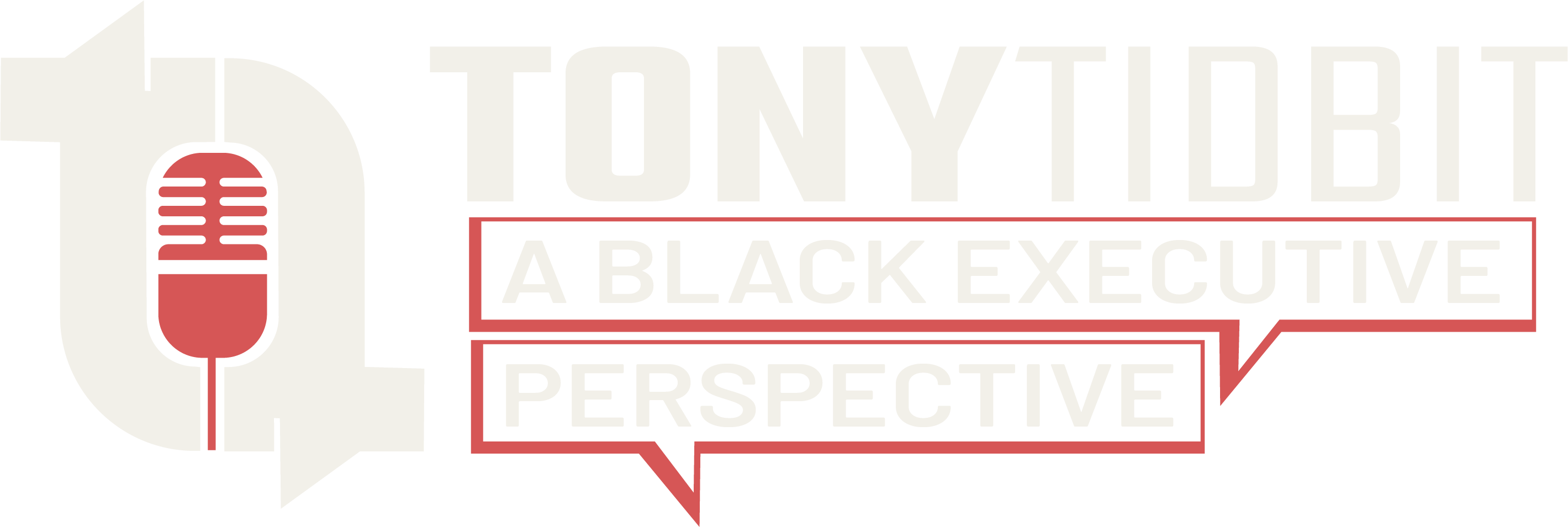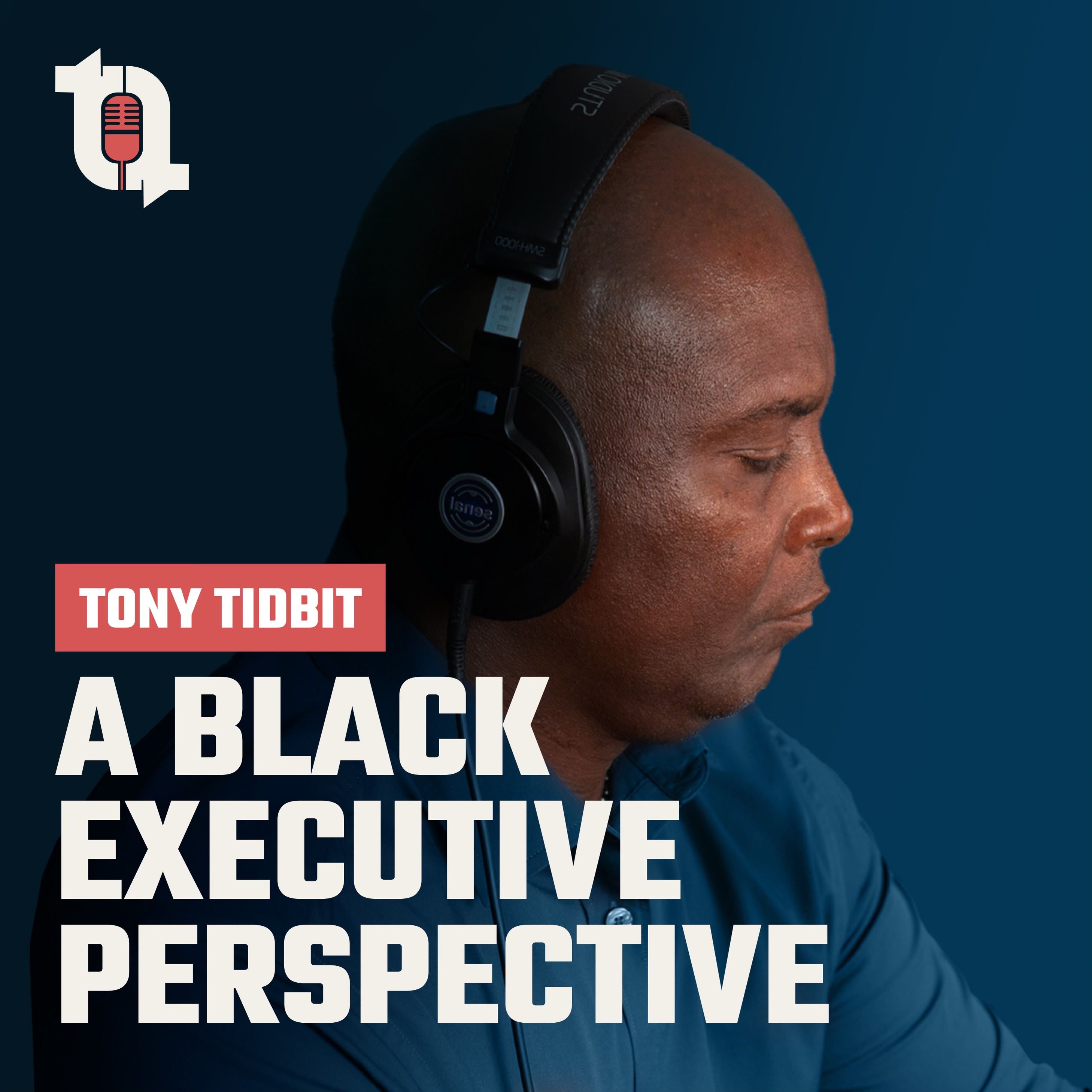Need To Know With Dr. Nsenga Burton-The Complex Reality of Hypervisibility.
Episode Title:
Episode Audio Link: https://podcast.ablackexec.com/episode/Hypervisibility and the Challenges Facing Women of Color in Leadership
Episode Video Link:
In this episode of 'Need to Know' with Dr. Nsenga Burton, the discussion centers on the concept of hypervisibility and its impact on women of color, particularly black women, in the workplace. Dr. Burton delves into the unique challenges faced by these women, using Vice President Kamala Harris as a case study to highlight issues of visibility and perceived effectiveness in leadership roles. Through examining Harris's significant contributions in areas such as reproductive rights, immigration, and voting rights, Dr. Burton underscores the double standards and biases that often undermine the achievements of women of color. The episode calls for greater awareness, critical thinking, and unlearning certain biases to foster a more equitable environment for all.
▶︎ In This Episode
- 00:00: Introduction to Need to Know
- 00:20: Understanding Hypervisibility
- 01:28: Kamala Harris in the White House
- 03:39: Kamala Harris's Contributions
- 09:21: Challenges Faced by Black Women in Power
- 11:33: Reflecting on Bias and Standards
- 13:20: Conclusion and Final Thoughts
🔗 Resources
Links and resources mentioned in this episode:
🔔 Listen and Subscribe
Listen to this episode and subscribe for future updates
subscribe to A Black Executive Perspective podcast on
- YouTube Podcasts
- Apple Podcasts
- Spotify Podcasts
- Amazon Music
- Other platforms or by searching "TonyTidbit"
if you like what we're doing and would like to support us, here's some ways you can help us continue the uncomfortable conversations that drive change
- subscribe to our newsletter
- give us up to a 5 star review on Apple Podcasts
- share an episode with a friend, family member or colleague
🗣️ Follow @ablackexec
follow us across social media @aBlackExec
⭐️ Follow @TonyTidbit
follow Tony across social media @TonyTidbit
This episode was produced by TonyTidbit ™ . Copyright © 2024 A BLACK EXECUTIVE PERSPECTIVE LLC. All rights reserved. No part of this podcast may be reproduced without prior written permission. For permissions, email podcast@ablackexec.com .
Transcript
A Black Executive Perspective now presents Need to Know
2
:with the award winning hyphenated Dr.
3
:Nsenga Burton.
4
:Dr.
5
:Burton.
6
:What do we need to know?
7
:Hello and welcome to Need to Know with Dr.
8
:Nsenga Burton.
9
:I am your host and I am happy to be here.
10
:Today we are going to be talking
about a phenomenon that some
11
:of you may be familiar with.
12
:Um, and it's a phenomenon, um, that we
discuss in academia quite a bit, but
13
:it's called this idea of hypervisibility.
14
:And hypervisibility is when
you appear to be everywhere, i.
15
:e.
16
:like black women, black
girl magic, all the things.
17
:Um, You know, our celebrities
and what have you, but then
18
:at the same time, you're made
invisible, um, an important spaces.
19
:So, um, today, we're gonna be talking
about that and we're gonna be talking
20
:about it relative to, um, the workplace.
21
:Right?
22
:So, when we think about the workplace,
and we think about many of the things that
23
:we're called to do within the workplace,
black women do a lot of the heavy lifting.
24
:A lot of times when we are able
to lead or we obtain positions of
25
:power, it's really at the worst
possible moment for a company.
26
:Um, that's when we get the shot and we
have to dig in and do all of the things.
27
:Um, so a real, uh, Example of this
right now is what's going on in the
28
:White House, which is a workplace.
29
:I know people think of it as a symbol
of democracy, but it's actually a
30
:workplace where people work many,
many employees every single day.
31
:They report to work and our current
Vice President, Kamala Harris is in
32
:the White House as Vice President,
and she is the 1st woman and 1st
33
:person of color Vice President in
the history of these United States.
34
:So, um, in English, in
case you've been living in.
35
:The Democrats are in a tizzy, uh,
because of the performance of President
36
:Joe Biden at the first debate with
former President Donald Trump.
37
:And so there have been lots of calls for
him to step down, lots of calls for them
38
:to open up, um, the floor at the DNC
to take potential, uh, new candidates.
39
:Um, and at the beginning of this
discussion, there was literally
40
:no discussion of Kamala Harris.
41
:The actual sitting Vice President.
42
:And so that made me think, or got
me to thinking about the precarious
43
:position in which women in general and
black women specifically often occupy
44
:in corporations, board, boardrooms.
45
:Um, and in this case, the white house.
46
:Um, even the idea that, you know, she's
not doing anything, which you hear a
47
:lot of, she's not doing anything as
Vice President, but we do know that
48
:the role of the Vice President is
to support the President and to not
49
:outshine the President, um, uh, is.
50
:Interesting as well.
51
:Right.
52
:So there's this idea that she should
be out in front and, uh, leading when
53
:in fact she is the Vice President.
54
:And so, you know, when people bring
this up, I often say, okay, so tell
55
:me, you know, five things, um, that
Mike Pence did as Vice President.
56
:They can't name them.
57
:I said, well, tell me three
things, um, that, um, Biden did.
58
:When he was Vice President
under Obama, they can't name.
59
:All right.
60
:And it's not saying that Vice
Presidents don't do anything.
61
:It's just that their role is
to be 1 of support and they're
62
:not necessarily out front.
63
:But the reason I'm bringing this
up is when you are a woman, and you
64
:are a person of color, black and
Asian, in Kamala Harris's case, then
65
:the expectation is greater, right?
66
:You should do more.
67
:You should be more available.
68
:You should have, um.
69
:A presence that is greater
than what is expected of
70
:others who don't look like you.
71
:Right?
72
:So when we think about Kamala Harris
and people talking about she hasn't
73
:done anything, I just would like to
highlight some of the things that
74
:she has done in her current role.
75
:Um, and I guess you could also look
at this on the GOP side in terms of
76
:who the potential Vice Presidential
candidates are, um, and the fact
77
:that there were no women candidates.
78
:Um, well, we could also look at this
from the GOP side and the fact that, um.
79
:Donald Trump is vetting the Vice
Presidential candidates and there are
80
:no women currently, um, uh, in the
group of people that he's vetting.
81
:And I think he's now down to two
people, but the fact that there are no.
82
:Women, members of Congress, or governors,
or what have you, who could be vice
83
:Vice President is also fascinating.
84
:But to stick with Kamala Harris, some
of the things that she has been doing,
85
:and she's been going about it quietly
because that's what we're doing.
86
:Vice Presidents do with the possible
exception of reproductive rights,
87
:which she's been very loud about.
88
:And she has had to be very loud
about based on the fact that Roe
89
:versus Wade has been struck down.
90
:And then a lot of states, including, you
know, I would say, just look at Alabama
91
:in particular, have made such strident
laws that you can't even do legally.
92
:Uh, in some cases, um, so she's
been very, uh, much involved in
93
:the reproductive rights case.
94
:Um, she has, um, you know, been
on tour, I would say, um, and
95
:actually, her tour has a name.
96
:But, uh, she has been on tour to discuss
these issues about reproductive rights.
97
:She has met with.
98
:No less than 18 states to discuss
their laws and what can be happening.
99
:What needs to happen and strategies
to protect reproductive rights.
100
:People like to talk about reproductive
rights as it's only abortion.
101
:It's not it's a whole litany of rights
that women should have over their bodies.
102
:Abortion is just one of them.
103
:And so, because Roe Vs.
104
:Wade has , it has been struck down
that opens the door for lots of other
105
:things being struck down as as well.
106
:And so we have to think about.
107
:That, um, as she has been
fighting for reproductive rights
108
:and reproductive freedoms, uh,
immigration is something else.
109
:People were saying that she was slow
to get on board with the immigration,
110
:um, uh, with the immigration reform.
111
:Um, that's probably true.
112
:Uh, but once she got on board,
she hit the ground running.
113
:Uh, she has proposed the Central American.
114
:A Central America forward forward
initiative, uh, in which she
115
:has helped, uh, yield yield 4.
116
:2Billion dollars in private sector
commitments to support the creation
117
:of jobs, local jobs, and other
measures to slow mass migration from
118
:Central America to the United States.
119
:So, whether, whether,
wherever you fall on.
120
:Immigration, right?
121
:Because there is a plan in place.
122
:We just really aren't doing it.
123
:We also know about the bipartisan plan
that was put forth by Joe Biden that was
124
:killed by the Republicans, because if
Trump gets in, apparently they want to
125
:be able to bring it back then and have it
be part of his win wins for the country.
126
:But she has, in fact, been leading.
127
:Um, that issue, um, in Central America,
and actually came up with, uh, uh, not
128
:only a strategy, but also a solution,
um, to the problem because a lot
129
:of people who are immigrating here.
130
:They're not only fleeing tyranny,
although we're on the brink of it.
131
:Now, they're not fleeing tyranny.
132
:They're also fleeing the
inability to find work, right?
133
:And to feed their families and
things of that nature and to improve
134
:their lives and improve the quality
of their lives, which is why they
135
:want to come to the United States.
136
:And then, of course,
there's voting rights.
137
:I mean, she's been working on that since
she was a senator even before that.
138
:Um, but certainly, as a senator,
and, um, you know, she was the
139
:one who introduced the freedom
to vote act, the freedom to vote.
140
:John Lewis act, and, of course,
that was voted against and that
141
:actually came down to 2 Democratic
senators who did not go with.
142
:Um, the majority at the time, um,
that would be Manchin and Sienma,
143
:which we don't hear a lot more
about, but it wasn't as if she wasn't
144
:trying to do anything around voting.
145
:Right?
146
:She's been very much involved in that.
147
:Um, those, if that had passed,
that would have extended the
148
:voting rights protections of the
:
149
:Black people are subject to having
our rights reapproved ever so often,
150
:unlike other groups in this country.
151
:Um, and of course that
was voted down as well.
152
:Um, but she has helped to craft political
coalitions and to apply pressure
153
:from outside of the white house.
154
:Um, through those political coalitions and
civil rights leaders, um, those strategic
155
:partnerships is what we would call them,
um, to build outside pressure on Congress,
156
:um, and engaging privately with lawmakers.
157
:Uh, so I say all of that to say, um,
this is not a pro Kamala commercial.
158
:What it is, is just three categories
in which she has done significant
159
:work since even before, but definitely
since she has been in the White House.
160
:And despite her having been basically
a Vice President that has had any
161
:drama, which we need that in our
political lives in the United States.
162
:But also, she has been working in
some what I would call areas that
163
:are heavy list immigration, women's
reproductive rights and voting.
164
:Those have been her 3 most.
165
:I would say her 3 topics that
she had prioritized the most.
166
:So she's done the heavy lifting
and been doing the heavy
167
:lifting and without any fanfare.
168
:Right, which leads me back
to our original discussion.
169
:The point is, um, is that now that people
are talking about whether or not Biden
170
:steps down, uh, if he should be replaced,
all of these discussions are happening
171
:and people are literally leapfrogging
over the sitting Vice President and that
172
:is indicative of the experiences of women
in general and black women, specifically
173
:when we are in positions of power,
allegedly, and there's an opportunity.
174
:For us to continue to serve or
to be elevated or to elevate.
175
:We are often under undermine
people's memories become very foggy.
176
:They become very short or
selective if you will, and they
177
:can't remember what you did.
178
:Or the, the very things that
they've been praising you for.
179
:I mean, the reproductive rights thing.
180
:She's been praised heavily in the
press, um, over the last few months.
181
:And now people aren't
even talking about it.
182
:It's like, what is she done?
183
:She hasn't done anything.
184
:We need somebody that people like people
don't like her, but no 1 really wants
185
:to talk about why people don't like her.
186
:Right?
187
:It's not unusual for black women, women
in general, black women specifically
188
:to be graded on a different curve.
189
:I mean, it happens everywhere in
academia, um, black women faculty
190
:have the worst teaching evaluations.
191
:Um, and not because we're the
worst teachers is because of how
192
:people, uh, undervalue black women.
193
:Right the expectations of how we should
treat them, um, uh, often people thinking
194
:that we are in service to them, because
most of the black women that they've
195
:encountered, particularly when we talk
about these elite universities, uh,
196
:black women, they have encountered
have been in service to them.
197
:And so when you're in front of the
classroom, right, or you're the chair
198
:of the department, or you're the dean,
or as we saw at Harvard, the President,
199
:then people are like, all those wonderful
things they loved about you, right?
200
:Hyper visibility, and they talk about
constantly and all the things which helped
201
:you get to where you were, in addition
to your hard work, they forget about it.
202
:Right?
203
:Oh, no, you have to go.
204
:Oh, no, we can't promote you.
205
:Oh, no, you're Vice President.
206
:You're sitting, you're the
sitting Vice President.
207
:We can't consider you.
208
:We can't even consider you
because you haven't done anything.
209
:Right?
210
:Right, so I'm just bringing that to
your attention and, you know, I think
211
:it is a need to know that this happens.
212
:It is common for particularly
dynamic black women to experience
213
:this type of treatment and it
is not unusual and so to be.
214
:Aware, you know, one of the things that,
um, I love about, uh, learning is that
215
:you have to unlearn certain behaviors.
216
:You have to unlearn certain practices.
217
:And so if you're someone who
maybe just kind of falls into
218
:that unconsciously, right.
219
:This unconscious bias, um, really
think about what you're saying.
220
:Like, you know, when you say to yourself,
ah, Kamala Harris hasn't done anything
221
:because you heard that on the news or you
heard somebody that you respect say it.
222
:Um, really think about, you know,
did you think that way about
223
:the previous Vice President?
224
:And if so, why, and if not, why not?
225
:And are you holding her
to a different standard?
226
:And why?
227
:So, you know, as the sitting U.S.
228
:Vice President.
229
:She should be considered, she should
actually be the nominee if Biden
230
:steps down, if Biden runs and wins
and goes away for whatever reasons,
231
:she's the next in line, right?
232
:So you can't just dispose of her
because she doesn't fit with the
233
:dominant narrative that Americans
love, where it has to either be an
234
:older white man, Trump, Biden, Bernie,
or, um, it has to be a white person,
235
:uh, you know, Gavin, And a bunch of
other folks, uh, Buttigieg who I like.
236
:I like both of them a lot.
237
:I'm just saying, I think
they would be great.
238
:But in this particular instance, how
people are going about it, how the
239
:party is going about it, how the public
is going about it is really wrong.
240
:So this is Dr.
241
:Nsenga Burton with your need to know
moment on the black executive podcast.
242
:I wish you a wonderful day.
243
:And I wish you discernment, kindness,
and empathy, and critical thinking
244
:as we move through the world.
245
:A Black Executive Perspective.





